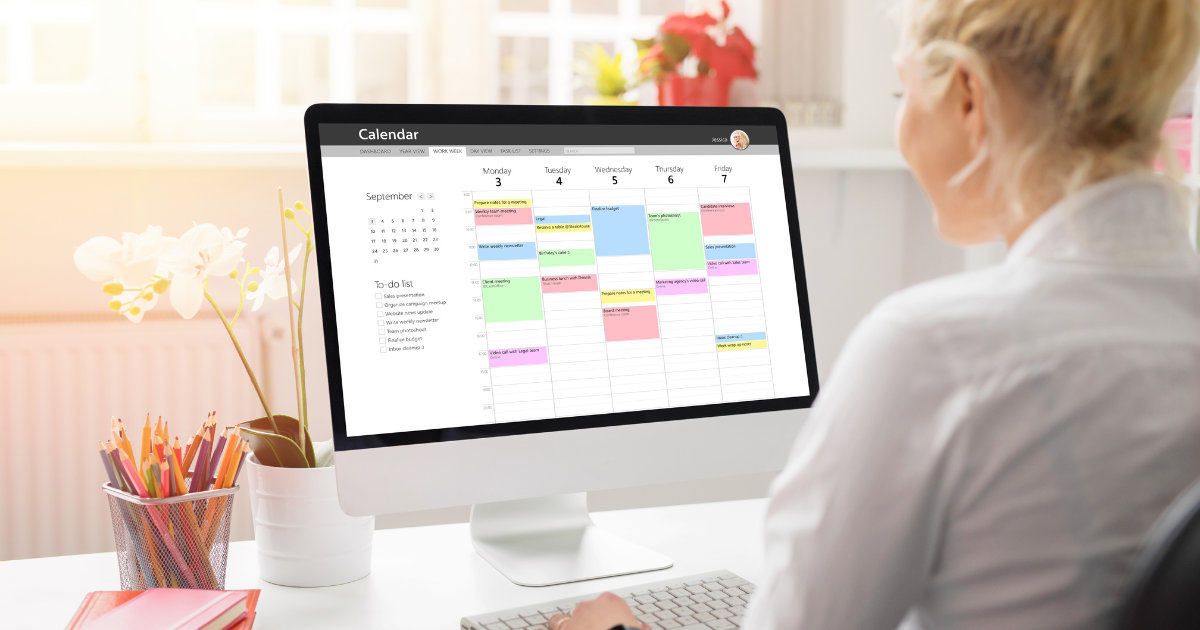 Searching for a job is hard enough without having to worry about scammers. But unfortunately, fake job postings are out there – and they can look very real. The good news? With a few simple tips, you can learn how to spot the red flags before it’s too late.
Searching for a job is hard enough without having to worry about scammers. But unfortunately, fake job postings are out there – and they can look very real. The good news? With a few simple tips, you can learn how to spot the red flags before it’s too late.
Here are 6 common signs of a job scam and what you can do to protect yourself.
1. Do Some Research
Scammers often create fake job listings that appear legitimate. Always check the official employer website to see if the job is listed there. If it’s not, it might be a scam. You can also look up the employer on Google and LinkedIn to make sure it’s real and has actual employees. If you’re unsure, contact the employer directly to double-check.
2. Never Pay for a Job
Legitimate employers will never ask you to pay for job applications, training, or equipment. If someone wants you to send money, it’s a scam.
Scheduling can also help with prioritizing equally important tasks. For example, if you need to work with a coworker on a specific project, but the only time you’re both available is next week, you can move the project lower down on your list and prioritize the tasks you can complete on your own this week.
3. Beware of Too-Good-to-be-True Offers
If a job offer seems too good to be true (enormous salary or fantastic perks with minimal effort required), it probably is. Be cautious of unrealistic promises. This is a common tactic used by scammers to lure people in.
4. Check for Professional Communication
Legitimate employers use professional email addresses and communication methods. Be wary of job offers from personal email accounts or poorly written messages. Larger employers will have their own domain. Carefully examine an email address to see if it is real or fake.
5. Protect Your Personal Information
Never provide sensitive personal information (your Social Security number or bank details) early in the hiring process. Legitimate employers usually wait to ask for this information until later in the hiring process – typically on the first day of work.
6. Trust Your Gut
If something feels off, trust your instincts. Don’t rush into anything. Take your time to verify the job before giving out any information or making any commitments.
Final Thoughts: How Ticket to Work Service Providers Can Help
Job scams are frustrating, but you can protect yourself by staying alert and asking the right questions. Ticket to Work service providers can offer trusted guidance throughout your job search. They can teach you what to watch for – like fake job listings, requests for payment, or suspicious emails – so you know how to spot warning signs early.
What is Ticket to Work?
Social Security's Ticket to Work (Ticket) Program supports career development for people ages 18 through 64 who receive Social Security disability benefits (SSDI/SSI) and want to work. Through this free and voluntary program, eligible participants can work with service providers to receive the services and supports they need to find and maintain employment as they move toward financial independence through work.
Our service providers have experience working with employers and understand common scams, so they can help you verify job offers and connect you with legitimate opportunities. Plus, they’re a safe resource to turn to if you’re unsure about a job or recruiter.
Connecting with a Ticket to Work service provider means you’re not alone in your search – you get expert help to find legitimate jobs, avoid scams, and build a career with confidence.
Start building your employment team today! Visit our Find Help Tool or call the Ticket to Work Help Line today! Call the Help Line: 1-866-968-7842. For callers who are deaf, hard of hearing, or have a speech disability, call 1-866-833-2967 (TTY). Hours are Monday through Friday, 8 a.m. - 8 p.m. You can also email us at TicketToWork@ssa.gov or visit choosework.ssa.gov.
 Have you ever looked at a posting for a job announcement and noticed the following phrases: "self-starter," "fast-paced environment," "ability to meet deadlines," or "ability to work independently”? What these and similar phrases mean is you will need to be good at managing your time. In this blog, we’re going to look at the importance of time management and how you can have a more efficient workday.
Have you ever looked at a posting for a job announcement and noticed the following phrases: "self-starter," "fast-paced environment," "ability to meet deadlines," or "ability to work independently”? What these and similar phrases mean is you will need to be good at managing your time. In this blog, we’re going to look at the importance of time management and how you can have a more efficient workday. When you hear the word “self-employment,” what comes to mind? Owning a brick-and-mortar store? Working in your own space—maybe a studio in your own home? Spending time doing something you love? Being your own boss? All of these may be associated with self-employment. Does the prospect of being responsible for how you earn your living appeal to you? Today we’ll talk about the many ways you can work for yourself, what makes for successful self-employment, and resources that can help you make self-employment a reality.
When you hear the word “self-employment,” what comes to mind? Owning a brick-and-mortar store? Working in your own space—maybe a studio in your own home? Spending time doing something you love? Being your own boss? All of these may be associated with self-employment. Does the prospect of being responsible for how you earn your living appeal to you? Today we’ll talk about the many ways you can work for yourself, what makes for successful self-employment, and resources that can help you make self-employment a reality. Career fairs are an excellent way to start or advance your job search. Whether they're in person or online, job fairs let you engage with potential employers and learn about job openings. If you're aware of an upcoming job fair that our readers would find helpful, please email us at
Career fairs are an excellent way to start or advance your job search. Whether they're in person or online, job fairs let you engage with potential employers and learn about job openings. If you're aware of an upcoming job fair that our readers would find helpful, please email us at  Have you recently started working and earning income? Congratulations! You’ve probably heard of gross income and net income. Now that you're working, it’s important to know the difference. We’ll review each one and share how both affect your path to financial independence through work.
Have you recently started working and earning income? Congratulations! You’ve probably heard of gross income and net income. Now that you're working, it’s important to know the difference. We’ll review each one and share how both affect your path to financial independence through work. It's tax season! If you earned income in 2024, it's important to file your taxes. This blog post discusses a tax credit that may apply to you and free services available through the Internal Revenue Service (IRS).
It's tax season! If you earned income in 2024, it's important to file your taxes. This blog post discusses a tax credit that may apply to you and free services available through the Internal Revenue Service (IRS). Career fairs are an excellent way to start or advance your job search. Whether they're in person or online, job fairs let you engage with potential employers and learn about job openings. If you're aware of an upcoming job fair that our readers would find helpful, please email us at
Career fairs are an excellent way to start or advance your job search. Whether they're in person or online, job fairs let you engage with potential employers and learn about job openings. If you're aware of an upcoming job fair that our readers would find helpful, please email us at  Imagine that you are having a job interview, and the recruiter asks, “When have you shown leadership skills?” Would you know how to answer? This is a common behavioral interview question that can be hard to answer if you’ve never had a formal leadership role. However, we have some pointers to help you think about how to answer the question, even if you haven’t had a leadership title. First, let’s talk about behavioral types of questions.
Imagine that you are having a job interview, and the recruiter asks, “When have you shown leadership skills?” Would you know how to answer? This is a common behavioral interview question that can be hard to answer if you’ve never had a formal leadership role. However, we have some pointers to help you think about how to answer the question, even if you haven’t had a leadership title. First, let’s talk about behavioral types of questions. Career fairs are an excellent way to start or advance your job search. Whether they're in person or online, job fairs let you engage with potential employers and learn about job openings. If you're aware of an upcoming job fair that our readers would find helpful, please email us at
Career fairs are an excellent way to start or advance your job search. Whether they're in person or online, job fairs let you engage with potential employers and learn about job openings. If you're aware of an upcoming job fair that our readers would find helpful, please email us at  Internships can be key stepping stones for people entering the workforce for the first time. For students, they are a bridge between academic learning and workplace expectations. However, internships aren’t “just for kids” anymore as more adults are seeking new careers or returning to work after a prolonged absence due to health, retirement, caregiving, or other personal reasons. Some people call these types of programs “returnships.”
Internships can be key stepping stones for people entering the workforce for the first time. For students, they are a bridge between academic learning and workplace expectations. However, internships aren’t “just for kids” anymore as more adults are seeking new careers or returning to work after a prolonged absence due to health, retirement, caregiving, or other personal reasons. Some people call these types of programs “returnships.”